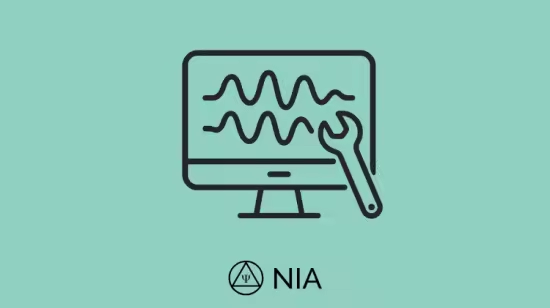
Free Download NIA QEEG Online Workshops 5 & 6
Published 9/2025
MP4 | Video: h264, 1280x720 | Audio: AAC, 44.1 KHz, 2 Ch
Language: English | Duration: 3h 30m | Size: 2.5 GB
Discover how EEG analysis can lead to effective neurofeedback interventions, and more
What you'll learn
Learn how to identify EEG patterns in raw EEG
Learn how to distinguish EEG from artifacts
Learn how EEG patterns correlate strongly with behavioural and emotional symptoms
Learn to match EEG patterns and presenting symptoms with neurofeedback training protocols
Learn how EEG patterns can help identify possible helpful psychotropic medications
Learn how QEEG analysis adds to our ability to find productive neurofeedback interventions
Requirements
Some familiarity with EEG measurement, ideally students have already had some experience recording and/or analysing 19-channel EEGs/QEEG
Ideally students already have completed a hands-on course in neurofeedback
This course DOES NOT teach the basics of neurofeedback, EEG or their instrumentation - how to use equipment IS NOT taught in this course
Description
In 2020 Dr Perl ran a series of online workshops where clinicians (his then current and former students and mentees) brought EEGs from their clients. Dr Perl analysed and discussed the EEGs and client symptoms with the clinicians, teaching his hands-on expert approach to EEG and neurofeedback, built up from decades of clinical work, teaching, mentorship and learning from world-leading experts like Jay Gunkelman.This course contains two such workshops with 3 EEG/QEEG analyses in each, giving 6 in total. The videos are taken from the workshops, virtually unedited, to give the sense of how the analyses proceed in real time. The cases presented are generally quite complex; cases where the clinicians have been having difficulty, either with the EEG interpretation, or have been having difficulty finding effective neurofeedback training strategies. Over the course of the workshops, the basic concepts of EEG and QEEG analysis are outlined - each case shows different issues present when analysing EEG. Issues such as montage, artifacts, high and low pass filtering, ICA analysis, LORETA analysis are all reviewed when relevant to the case at hand. When analysing the EEGs themselves, the presence of patterns present in the EEG is a central theme. These patterns, failure modes of the EEG, often known as EEG Phenotypes, have significant correlations with behavioural and emotional symptoms seen in our client populations. Where EEG patterns and client symptoms match, we are able to develop very effective neurofeedback training protocols to help ameliorate the symptoms and improve clients' functioning. EEG patterns are also very useful in giving indications as to which classes of psychotropic medications may be helpful, if that is a direction the client needs to consider.By completing this course, students can obtain 3 hours of BCIA recertification credit.Workshop #5This is the recording of an online workshop (27th April 2020), Dr Moshe Perl reviewed the EEGs of 3 cases
Who this course is for
This course is made for neurofeedback practitioners, however an interest in neurofeedback may suffice
Neurofeedback practitioners wanting to learn a more hands-on approach to EEG analysis/QEEG (a la Jay Gunkelman and Dr Perl), rather than relying solely on computer-generated results
Homepage
Code:
https://www.udemy.com/course/qeeg-workshop-5-6/Recommend Download Link Hight Speed | Please Say Thanks Keep Topic Live
Rapidgator
gfajp.NIA.QEEG.Online.Workshops.5..6.part1.rar.html
gfajp.NIA.QEEG.Online.Workshops.5..6.part2.rar.html
gfajp.NIA.QEEG.Online.Workshops.5..6.part3.rar.html
Fikper
gfajp.NIA.QEEG.Online.Workshops.5..6.part1.rar.html
gfajp.NIA.QEEG.Online.Workshops.5..6.part2.rar.html
gfajp.NIA.QEEG.Online.Workshops.5..6.part3.rar.html
FreeDL
gfajp.NIA.QEEG.Online.Workshops.5..6.part1.rar.html
gfajp.NIA.QEEG.Online.Workshops.5..6.part2.rar.html
gfajp.NIA.QEEG.Online.Workshops.5..6.part3.rar.html
No Password - Links are Interchangeable
